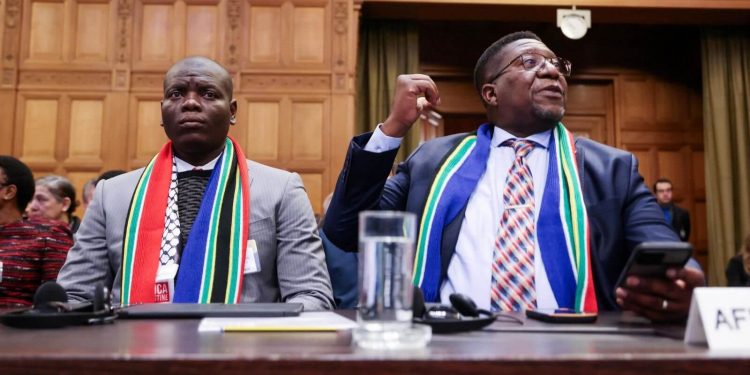In a move that is reverberating through international legal circles, a group of South African lawyers is preparing to file a groundbreaking lawsuit against two of the world’s most powerful nations, the United States and the United Kingdom. The charge? Complicity in alleged war crimes committed by Israel in Gaza.
The Genesis of a Global Legal Battle
Led by Wikus Van Rensburg, this team of nearly 50 lawyers is not just challenging Israel’s actions but also aiming their legal arsenal at the US and UK for their alleged role in enabling these actions. This step comes in the wake of South Africa’s earlier case against Israel at the International Court of Justice (ICJ) for genocide in Gaza.
A Strategic Legal Crusade
The lawsuit is not merely about seeking justice for the victims of the Gaza conflict. It’s about challenging the underpinnings of international relations and the often-unquestioned support that powerful nations extend to their allies. The South African legal team, collaborating with lawyers in the US and UK, is poised to hold these nations accountable in civilian courts.
Historical Echoes and Global Implications
Drawing parallels with the lack of accountability for US actions in Iraq, this initiative seeks to set a precedent in holding nations responsible for their indirect roles in international conflicts. The case underscores a rising global consciousness about legal accountability and challenges traditional diplomatic and military alliances.
The Path Ahead: ICJ’s Role and Potential Outcomes
Central to this legal endeavor is the ongoing genocide case against Israel at the ICJ. Should the ICJ rule in favor of South Africa, it could significantly bolster the lawsuit against the US and UK, potentially leading to sanctions and increased international pressure. This would mark a pivotal shift in how global power dynamics are legally challenged, impacting future international relations and military alliances.
A Legal Tipping Point?
This lawsuit signifies a significant shift in the legal landscape, where the actions of global superpowers are being scrutinized and challenged. It’s a bold move that could reshape international legal precedents and alliances, heralding a new era of global justice where even the most powerful nations are not beyond the reach of the law.



























